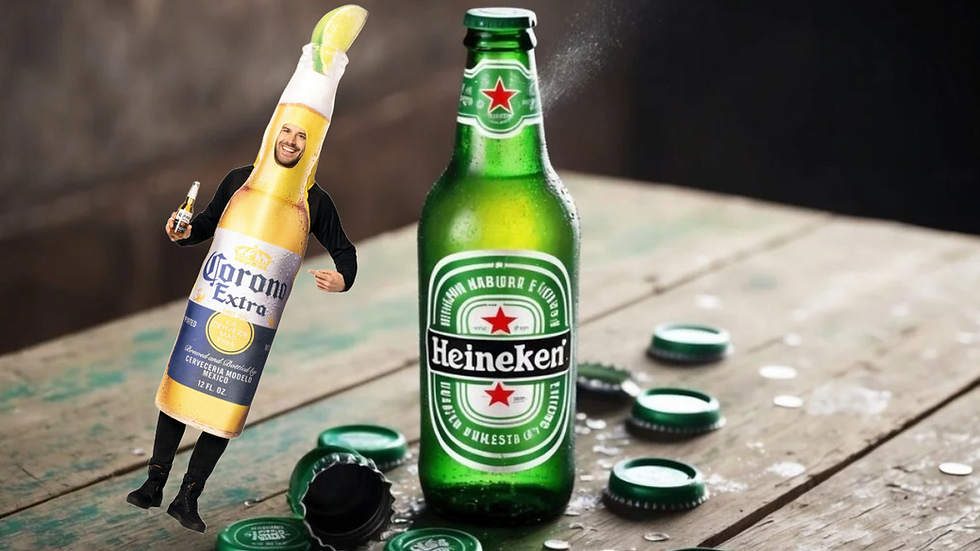In 1987, Heineken Tried to Convince Beer Drinkers That Corona Was Actually Urine

If the thought of drinking beer that was once inside another person turns your stomach, you might have some sympathy for Corona beer lovers in 1987.
By then, Corona Extra had established itself as a sensation in the United States, despite having been introduced to the market only eight years earlier in 1979. Its branding as the ultimate "California surfer" beer — synonymous with carefree, beachside living — quickly made it a national favourite. By the mid-1980s, Corona was the second most popular imported beer in the U.S., trailing only Heineken.
The beer’s meteoric rise seemed unstoppable. Produced by Grupo Modelo in Mexico, Corona had found a sweet spot in American tastes and culture. But suddenly, the tide turned. Stores began refusing to stock it, sales nosedived, and public opinion soured seemingly overnight. The culprit? A bizarre and damaging rumour that claimed Corona beer contained urine.
According to the rumour, disgruntled Mexican workers had supposedly urinated into beer bottles intended for export to the U.S. This outlandish claim painted the alleged act as a form of revenge against their northern neighbours. The whisper campaign spread through the distribution networks, fuelling paranoia among consumers. Whether driven by xenophobia, competitive sabotage, or sheer absurdity, the rumour threatened to derail one of the most successful beer brands of its time.
Sadly, this obvious lie was believed by many beer drinkers. In some towns, sales went down by almost 80 percent, and stores all over the country returned shipments. Though not everyone believed the ridiculous rumour, enough people panicked and spoke out against the company for there to be irreversible consequences on sales and brand name.
Panicking, Michael J. Mazzoni of Barton Beers, the company that distributed Corona, decided to investigate into the matter to see in what way the company’s reputation could be salvaged. He somehow managed to trace the rumour back to one of Heineken’s retailers, Luce and Son, Inc., who were eager to chip away at Corona’s growing market share.
Corona’s parent company sued for $3 million in damages. A settlement was reached, and, Luce and Son, along with representatives of other beer companies who had been happy to repeat the rumour, agreed to issue public statements denying the veracity of the allegations.
The damage to Corona’s reputation had been sustained, though and not just to the beer: the rumour fed upon and amplified racist stereotypes against Hispanic culture. It took the company years to recover, and it has taken them even longer to dispel the falsehood that, perhaps, prevented their becoming the most popular imported beer in the U.S.. Articles dedicated to dispelling myths about beer continue to struggle to debunk the rumour.
And even people who are sound enough to realise the rumour is a blatant lie, often have a hard time dispelling the unpalatable image of urine as they see the yellow, foamy beer. So much so, that Urban Dictionary lists “Mexican piss water” as a derogatory name for Corona. Old rumours die hard.